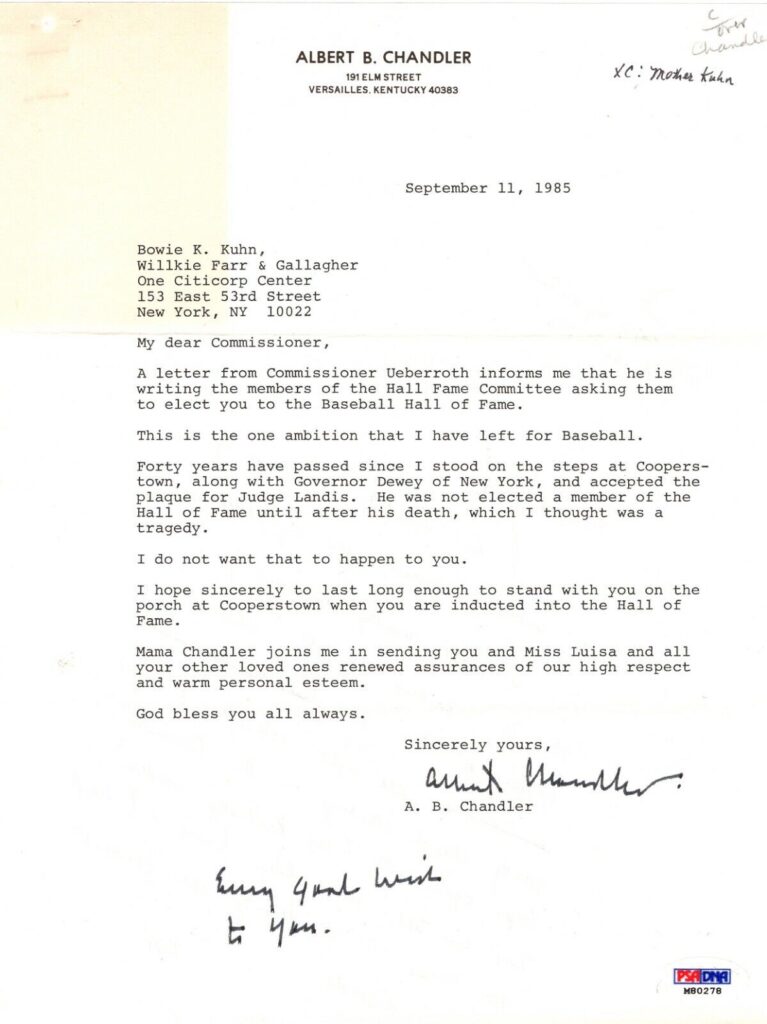
The Baseball Hall of Fame recognizes men who left an everlasting impression on the game. In addition to players, umpires, and general managers, four commissioners have earned induction.
Baseball’s first commissioner was Judge Kenesaw Mountain Landis. Brought in to fortify the integrity of the game after the 1919 White Sox scandal, Landis ruled with an iron fist from 1921-1944. Two weeks after his death on November 25, 1944, Landis was voted into Cooperstown by a special committee. In Landis’ absence his successor Happy Chandler accepted the honor on his behalf.
From 1945-1952 Chandler was baseball’s chief. He oversaw the racial integration of the sport. The Veterans Committee voted gave Chandler baseball’s highest honor when he was inducted in 1982.
Longtime National League President Ford Frick took baseball’s reins in 1952. As NL boss he helped found the Hall of Fame. In MLB’s driver’s seat, he oversaw expansion from 8 teams in each league to ten. Frick got his Cooperstown plaque in 1970.
The fourth commissioner of the game was William “Spike” Eckert, a lieutenant general in the Air Force. Virtually unknown to the public, Eckert was tabbed with the nickname “The Unknown Soldier”. His relative anonymity continues today.
Baseball’s youngest commissioner remains Bowie Kuhn who was named to the position at 42 years of age. A lawyer by trade, Kuhn served as a counsel to Major League Baseball for nearly 20 years prior to his election as commissioner.
During a tumultuous rule that lasted from 1969-1984, Kuhn introduced night baseball to the World Series, and helped usher former Negro League players into the Hall of Fame. Near the end of his time in baseball he helped clean up baseball’s cocaine problem. Kuhn was succeeded by former president of the United States Olympic Committee, Peter Ueberroth.
In this letter baseball’s second commissioner Happy Chandler writes to Kuhn.
“A letter from Commissioner Ueberroth informs me that he is writing the members of the Hall of Fame Committee asking that they elect you to the Baseball Hall of Fame.
“This is the one ambition I have left for Baseball.
“Forty years have passed since I stood on the steps of Cooperstown…and accepted the plaque for Judge Landis. He was not elected a member of the Hall of Fame until after his death, which I thought was a tragedy.
“I do not want this to happen to you.”
Chandler lived to the ripe old age 92 before passing away in 1991. Kuhn passed away in 2007 and was inducted the following year.
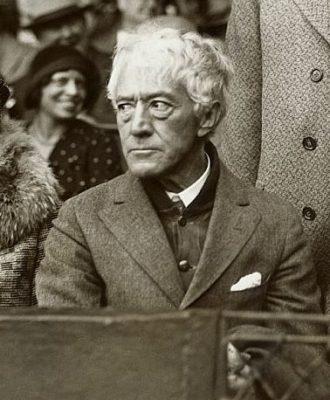
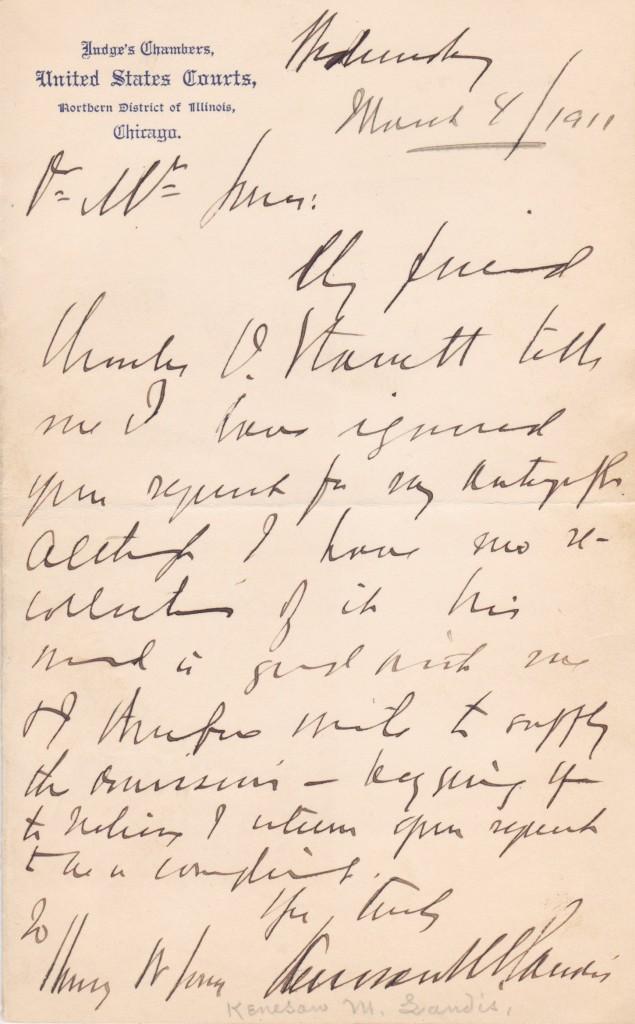
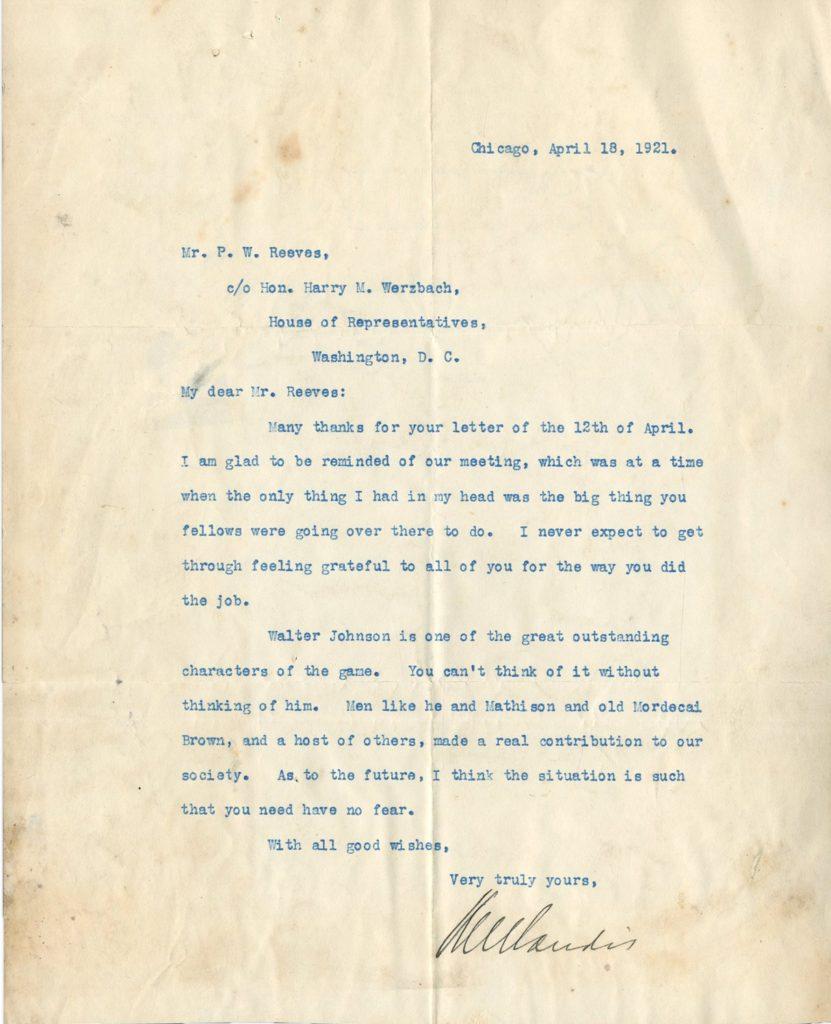

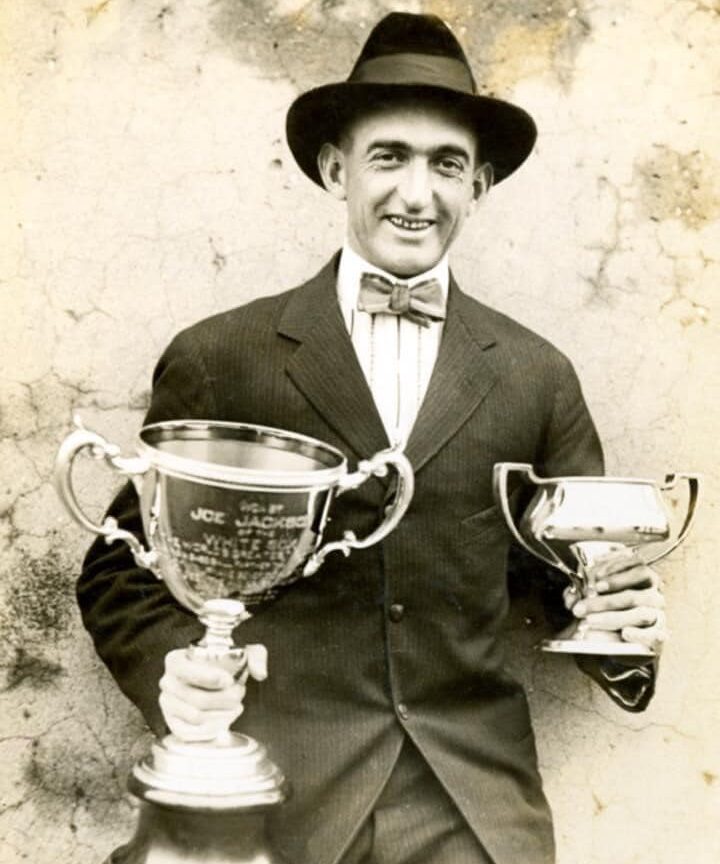
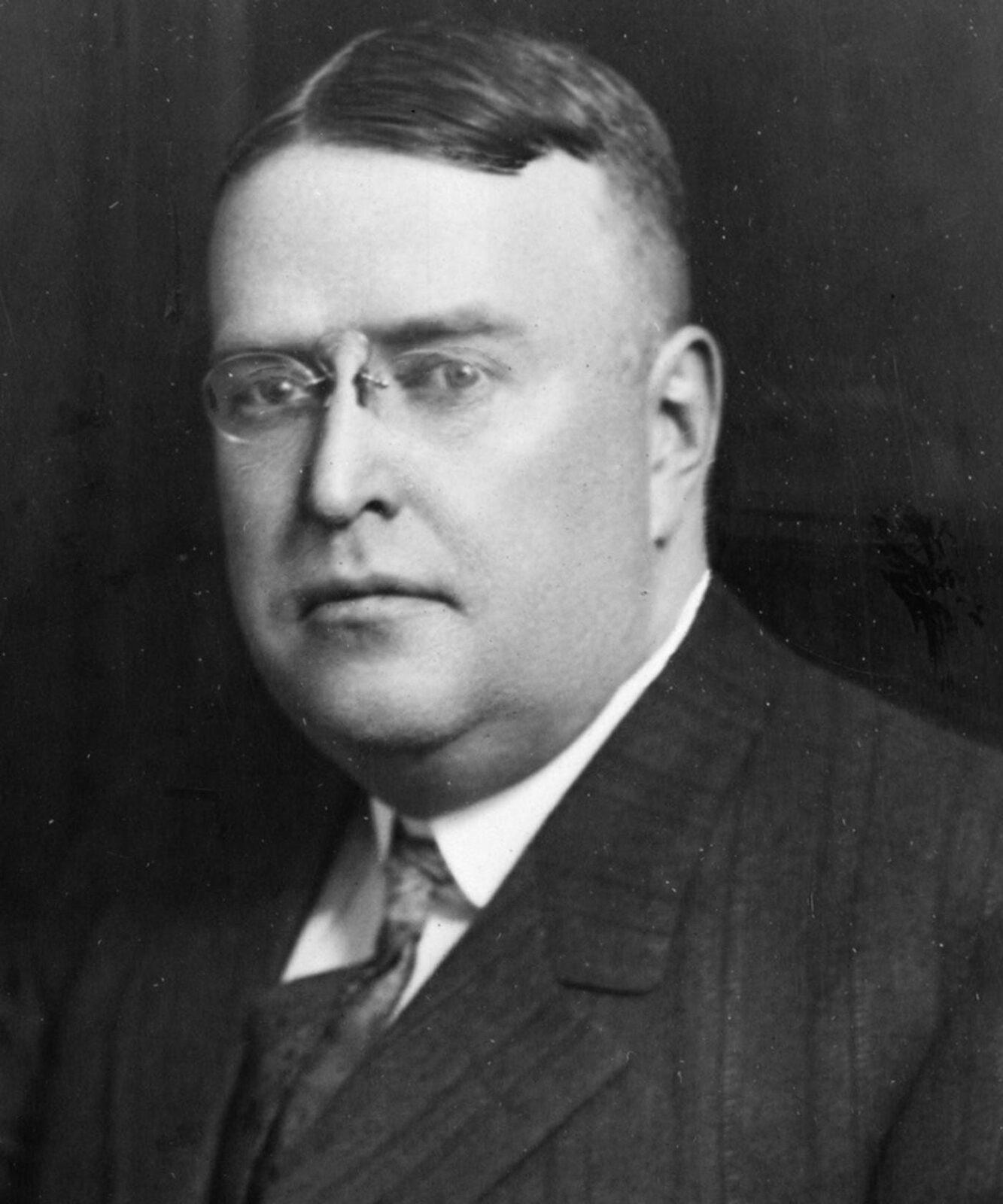
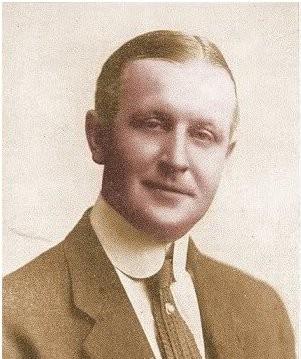
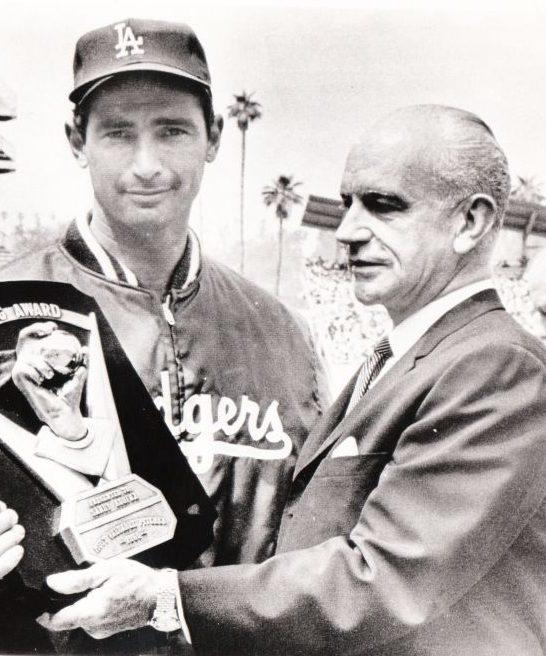
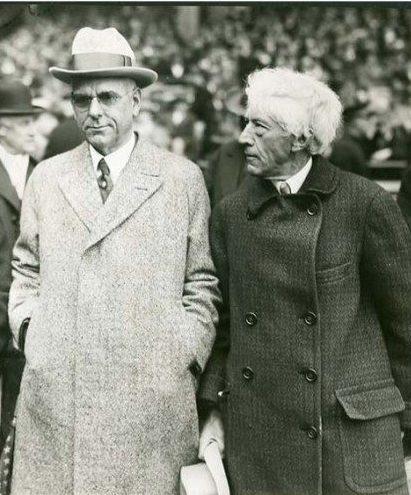
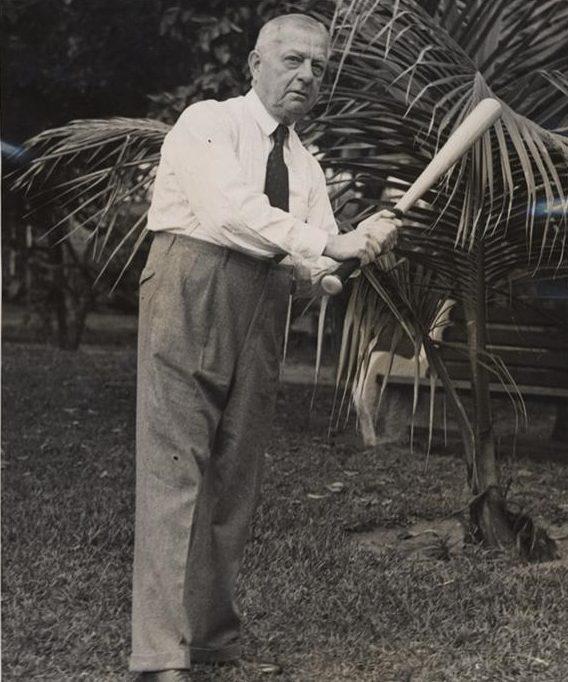
Though Judge Landis is credited with cleaning up professional baseball after the “Black Sox” scandal, he was responsible for keeping baseball a segregated game. His denials for this are legendary, however, his decisions and deeds on the matter speak more loudly than his proclamations. Besides being a horrible Federal Judge (read about his decisions being overturned by appellate courts) he was a malevolent first Commisioner of Major League Baseball. If ever there were a case to remove a man from the Baseball HOF, it should be reserved for this man. I realize that it would be easier to move Kennesaw Mountain than it would be to remove Judge Landis from the Hall.
I agree. When you are in a position that can make a difference, such as clarifying right from wrong, you have to take a stand. You will receive negative feedback but that’s to be expected because the people of close-minded ignorance will want to be heard. They don’t know any other way but to be confrontational. (Similar to Ernest T. Bass. He chose the rock with a note through the window method. No matter how many times he was asked not to break windows, Ernest T. got results when he did.)
Maybe Landis didn’t want to be bothered with the confrontation. But with change comes the need for clarification. You have to persist.
He chose not to do anything. Integration was not necessary. The African Americans had their own league.
Integration was someone else headache.
Judge Landis didn’t see any reason to integrate. The African Americans had their own league.
He just did what he could to keep them in their league.
So typical of 21st century virtue signalers to trash a dead white man. Landis was hired and worked for 16 owners of baseball teams who had agreed not to employ black players — more than two decades before he became commissioner.
There isn’t a single incident where an owner complained that Landis prevented them from signing a black player. And, there has never been a claim from a Negro League player that they were offered a contract from an MLB owner only to be blocked by Landis. Not one offer, even from perennial-basement dwellers like Boston, Brooklyn, and Chicago, despite endorsements of many white players who played with and against black players in winter leagues and barnstorming tours.
Without a shred of evidence this man’s reputation has been unjustly tarnished. “Everyone” knew Landis was a racist, yet no one has produced a shred of evidence.
Meanwhile, Franklin Roosevelt was POTUS from 1933-45. Unlike Landis, Roosevelt could hire anyone he chose to the Executive Branch of government. How many blacks were senior members of the White House staff? How many cabinet secretaries did FDR appoint? How many Federal Judges? None! About the same number of historians consider FDR a racist. Hmm.